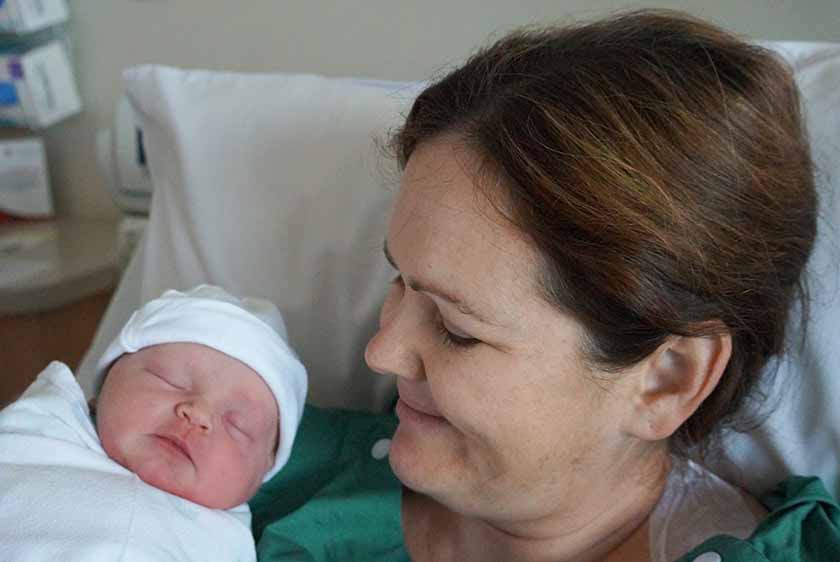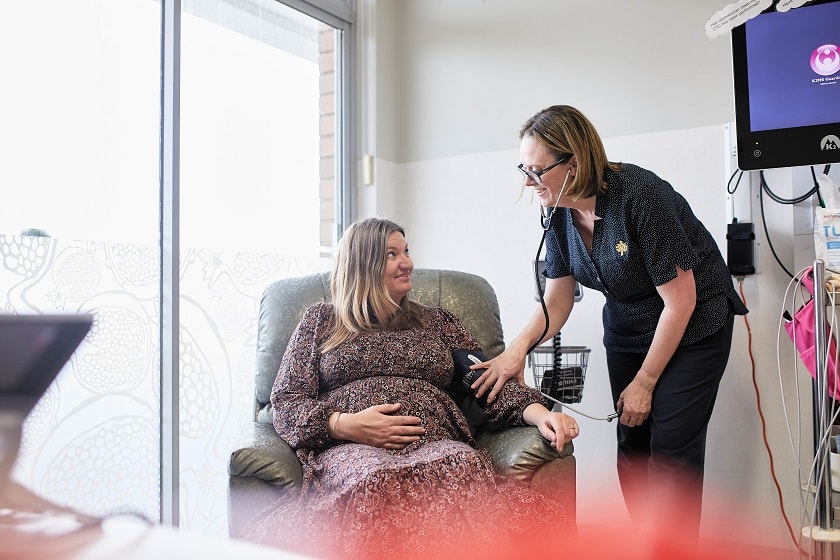Rooming-in is a family-centred way of encouraging parents and babies to get to know each other while still having the support of the hospital staff.
After all, you have just spent nine months waiting to meet your baby, so it’s natural to want to have them by your side at all times.
It’s not just for safety and security reasons that we encourage rooming-in, there are many benefits for mum and baby.
Benefits for mum:
- You are more likely to have better quality sleep knowing your baby is right beside you. While it may be tempting to send your baby to the nursery for a few hours, studies have actually shown that it makes no difference to your quality of sleep.
- Ability to learn your baby’s cues - sleepy, stressed, in need of quiet time, or hungry.
- Increased confidence in handling and caring for your baby.
- It helps establish breastfeeding as more skin-to-skin care is performed, milk tends to come in quicker and you become more confident in identifying early feeding cues such as rooting, opening mouth, and sucking on tongue, fingers, or hand, and latching your baby to the breast.
- Less infant crying and distress - your baby feels safe and secure when they can smell you and hear your voice.
- It can reduce the ‘baby blues’ and risk of postpartum depression.
- Parents are usually better-rested and more relaxed by the end of the first week home.
Benefits for baby:
- Rooming-in reduces risk of SIDS (Sudden Infant Death). Babies that share the same room as parents are less likely to fall into a very deep sleep which has been attributed to some instances of SIDS. This is because your breathing noises and movements help regulate their light and deep sleep cycles.
- Better quality sleep as it may help ease the transition to day/night routines. It’s dark and quiet in your room at night and it is not in a nursery.
- Generally, babies will be more content with less crying and unsettled periods.
- Less crying means lower levels of stress hormone, allowing growth and development hormones to work more efficiently.
- Breastfeeding gets off to a better start because you are able to respond to their feeding cues quicker - you become ‘in sync’.
- Feeding on demand helps to stabilise their blood sugar.
- You are more likely to have more skin-to-skin time. This helps regulate your baby's temperature and also exposes them to normal bacteria on your skin which helps your baby form their own immune defences.
You can see there are many reasons we encourage rooming-in at St John of God Mt Lawley Hospital. Of course, you will also have the help and support of the midwives who are on-hand to assist with bathing, feeding, changing nappies and any other help you need with caring for your new baby.
Remember that rooming-in assists parents to respond to their baby’s needs making you feel more confident and prepared for caring for your baby at home.








